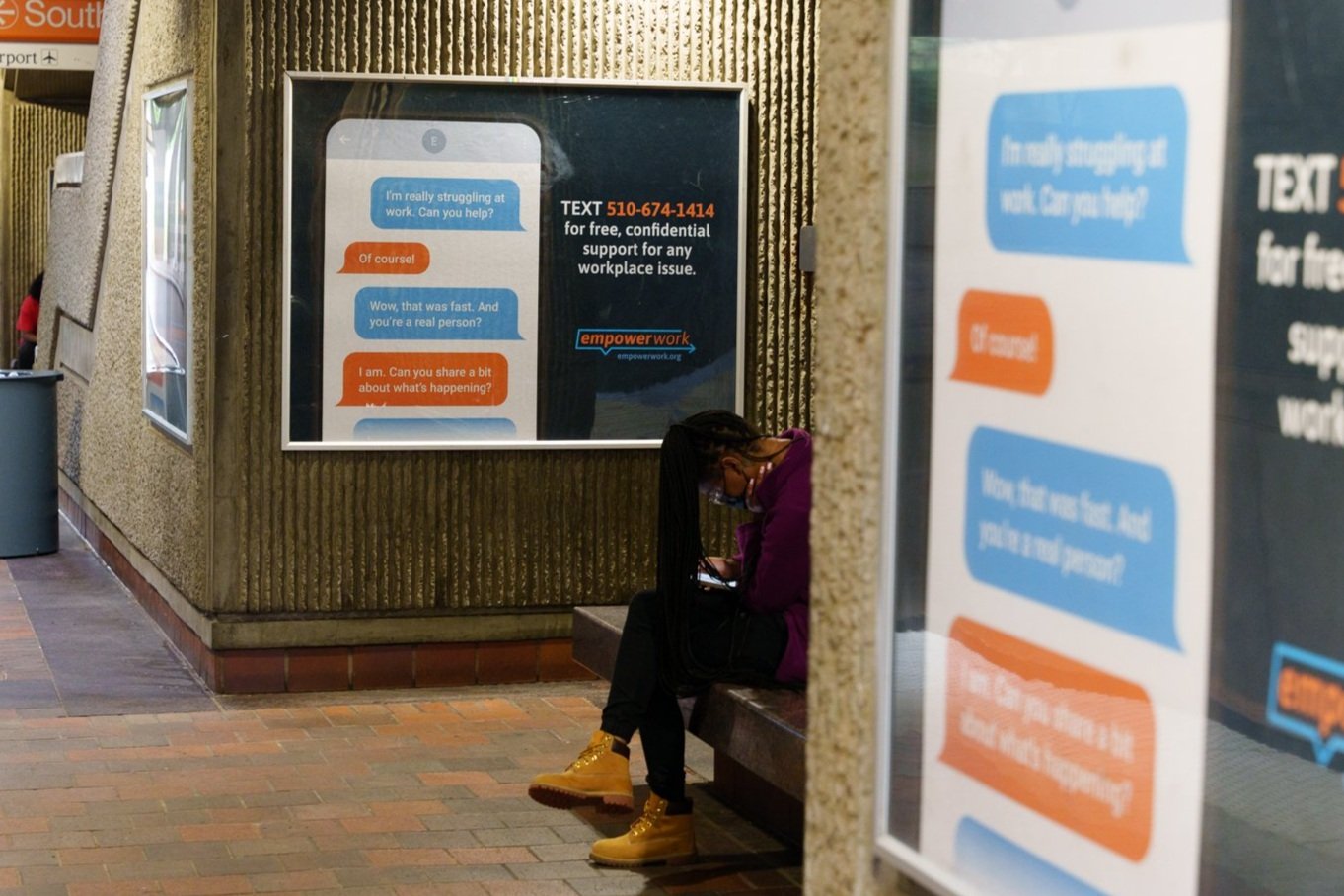Addressing burnout takes more than self-care
In 2019, the World Health Organization (WHO) recognized “burnout” with a code in its International Classification of Diseases, defining it as “chronic workplace stress that has not been successfully managed.”
As a formal diagnosis, the WHO directs, burnout applies only to occupational situations, not other areas of life. Burnout’s three key components are exhaustion, cynicism and negativity about a job, and reduced job performance. Burnout is more than being “stressed out.” More often, it feels like depletion.
When you’re burned out, you have nothing left to give, like the Empower Work texter who shared:
I’ve experienced what could be considered burnout symptoms in the past, but this time it just feels like, “I’m done.” In the past I used words like overwhelming, stressful, secondary trauma, but now I just come up with, “I feel like I don’t really care anymore.”
While you’ll find many articles about how to address burnout with self-care techniques like meditation, rest, exercise, Maggie Levantovskaya, a union organizer for adjunct professors, has a different perspective. She tweeted, “Why I prefer using the term exploitation over burnout: Burnout makes it about worker feelings. Exploitation draws our attention to employer practices and policies which require structural solutions.”
To curb the epidemic of burnout, we need to address the context that allows it to develop: the learned helplessness that results when a person’s job lacks both autonomy and support.
Here are some common workplace practices that interfere with workers’ ability to cope with ordinary life stressors:
Inflexible schedules and just-in-time scheduling limit employees’ ability to manage commitments outside of work.
Understaffing leads to overwork for scheduled employees, excessive overtime, and sometimes conditions where it’s impossible to do a job you’re proud of.
When employees deal with other people (or animals) who are suffering, they may develop compassion fatigue, especially if they lack training and support to process their emotions.
Being asked to lie or overlook wrongdoing can cause moral injury.
Workers can tamp down their stress responses with self-care techniques. Organizations like Empower Work need to exist to offer support. And the U.S. Office of the Surgeon General took a strong stand in recognizing the state of the workplace as a public health crisis. Ultimately, the cure for burnout isn’t self-care – it’s culture change.
If you’ve been feeling frustrated – or even gaslit – by the dialogue around burnout, consider chatting with an Empower Work peer counselor. They can help you sort out what’s in your control and what isn’t, and help you find a way forward.
*Note: Empower Work provides non-legal support for workplace challenges. This information, while authoritative, is not legal advice or guaranteed for legality. Employment laws and regulations vary by state. We recommend consulting with state resources for specific interpretation and decisions. If you believe you were discriminated against in violation of the law, we recommend you seek legal advice.

